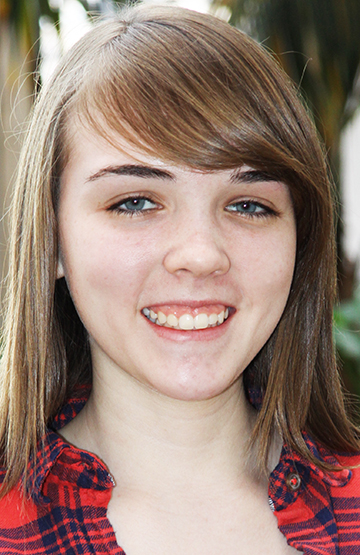Bronze skin not worth risks


It is officially summer, which means a ton of outdoor activities. It also means it’s time to attempt to get a tan.
I am pretty light-skinned and people do not hesitate to let me know this incredibly insulting fact that my mirror confirms every day. So, in the summer, I spend an endless amount of time laying out and trying to turn some color other than translucent. As you can probably guess, this normally does not end well.
The past two summers, I have gotten terribly sunburned —once on my stomach and another time, on my chest.
I self-diagnosed them as second-degree burns and even had to get prescription medicine for one. They caused me an immense amount of pain that I would never wish on my worst enemy.
I’m sure you’re wondering why I’m so dumb and refused to put the proper SPF (Sun Protection Factor) sunscreen on or why I didn’t just give up and stay indoors. However, I’m sure many girls and even guys can relate to trying this hard to get tan.
I haven’t gotten skin cancer yet but there’s a huge possibility I will someday because of my poor life choices. So, this summer, I have decided to take the proper precautions, and actually wear sunscreen and try to protect my skin.
One out of every five Americans will develop skin cancer at some point in their lifetime, making skin cancer the most common type of cancer, according to www.skincancer.org.
There are three different types of skin cancer: melanoma, squamous cell carcinoma and basal cell carcinoma. Melanoma is the deadliest and kills more than 8,700 Americans each year.
The Skin Cancer Foundation reports that a person who has had five or more sunburns doubles his or her risk of developing melanoma. Men may not think this applies to them but in the age group of 15 to 39, they are 55 percent more likely to die from melanoma than women.
I’ve lost count of how many sunburns I’ve had so I’m probably in trouble. Luckily for all of us, using sunscreen that is SPF 15 or higher on a daily basis reduces the risk for melanoma by 50 percent and the risk for squamous cell carcinoma by 40 percent.
Sunscreen helps prevent damaging ultraviolet (UV) rays from reaching the skin. Sunscreen with SPF as low as 15 provides 15 times longer protection from skin reddening. The Skin Cancer Foundation said that although no sunscreen can completely block out UV rays, the higher the SPF, the greater protection your skin will have. SPF 15 only protects against 93 percent of UV rays, while SPF 50 protects 98 percent.
Sunscreen should be reapplied every two hours regardless of SPF. People also should consider using waterproof sunscreen if they will be sweating or getting wet.
The National Cancer Association recommends also wearing long sleeves, long pants, hats and sunglasses.
Even if you want to be tan, it’s probably not worth it in the end.
I’m know I’m going to try to do a better job about taking care of my skin because I would like to live to see my grandchildren. Maybe you should too.